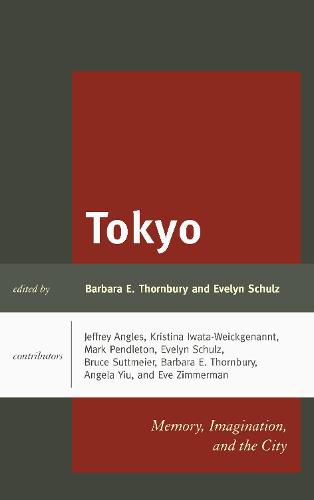Readings Newsletter
Become a Readings Member to make your shopping experience even easier.
Sign in or sign up for free!
You’re not far away from qualifying for FREE standard shipping within Australia
You’ve qualified for FREE standard shipping within Australia
The cart is loading…






Tokyo: Memory, Imagination, and the City is a collection of eight essays that explore Tokyo urban space from the perspective of memory in works of the imagination-novels, short stories, poetry, essays, and films. Written by scholars of Japanese studies based in England, Germany, Japan, and the United States, the book focuses on texts produced in Japan since the 1980s. The closing years of the Showa period (1926-1989) were a watershed decade of spatial transformation in Tokyo. It was also a time (in Japan, as elsewhere) when conversations about the nature of memory-historical, cultural, collective, and individual-intensified. The contributors to the volume share the view that works of the imagination are constitutive elements of how cities are experienced and perceived. Each of the essays responds to the growing interest in studies on Tokyo with a literary-cultural orientation.
$9.00 standard shipping within Australia
FREE standard shipping within Australia for orders over $100.00
Express & International shipping calculated at checkout
Tokyo: Memory, Imagination, and the City is a collection of eight essays that explore Tokyo urban space from the perspective of memory in works of the imagination-novels, short stories, poetry, essays, and films. Written by scholars of Japanese studies based in England, Germany, Japan, and the United States, the book focuses on texts produced in Japan since the 1980s. The closing years of the Showa period (1926-1989) were a watershed decade of spatial transformation in Tokyo. It was also a time (in Japan, as elsewhere) when conversations about the nature of memory-historical, cultural, collective, and individual-intensified. The contributors to the volume share the view that works of the imagination are constitutive elements of how cities are experienced and perceived. Each of the essays responds to the growing interest in studies on Tokyo with a literary-cultural orientation.